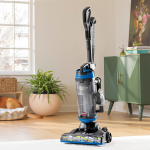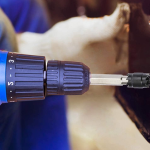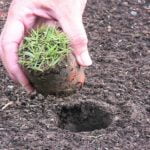Are you struggling with hard soil or stubborn roots? Finding the perfect garden fork can make all the difference. Our guide to the best garden fork will help you choose wisely.
Whether you’re a seasoned gardener or just starting out, a reliable digging fork is an absolutely essential gardening tool. This versatile implement is perfect for a variety of tasks, including turning compost, aerating soil, and dividing perennials. Unlike a shovel, which can compact the soil, a fork’s tines allow you to break up the ground and maintain its structure, promoting healthier plant growth. When choosing the right tool, you’ll want to consider factors like the handle material, tine count, and overall durability.
Navigating the wide selection of available tools can be overwhelming, with options ranging from heavy-duty models to those designed for specific tasks. Ultimately, the best choice depends on your specific needs and the type of soil you’re working with. In this comprehensive review, we’ll break down the top options on the market, evaluating their performance, build quality, and value. Read on to discover which model is right for you, making your next gardening project much easier and more efficient.
Top 5 Best Garden Forks For Digging
10 Best Garden Forks Review
1. Ymachray 5-Tine Heavy Duty Pitch Fork for Gardening
The Ymachray 5-Tine Heavy Duty Pitch Fork is a rugged and reliable tool designed for gardeners who need to tackle tough tasks. Its advanced ergonomic T-handle and durable construction make it a go-to choice for loosening, lifting, and turning various garden materials. This is an excellent option for gardeners with an eye toward long-lasting tools that can handle demanding jobs, from breaking up compacted soil to moving mulch.
One of the standout features of this pitch fork is its stainless steel head, which resists rust and minimizes soil adhesion. The head is also built with an extra-long double-riveted socket, providing exceptional strength and durability. The T-handle is designed to reduce stress on your hands and wrists, making it more comfortable to use for extended periods. However, some users may find the T-handle less familiar or as comfortable as a traditional D-handle for certain tasks.
Overall, the Ymachray is a dependable tool that performs well in a variety of conditions. Its square tines are particularly effective for cultivating and aerating soil, and it’s also great for digging up stubborn roots and weeds. This garden fork will prove to be a valuable asset for anyone who needs a sturdy, multi-purpose tool for general garden maintenance and heavier-duty projects.
| PROS | CONS |
|---|---|
|
|
2. Spear & Jackson Neverbend Professional Digging Fork
The Spear & Jackson Neverbend Professional Digging Fork is engineered for the serious gardener who demands a tool that can withstand heavy, day-to-day use. This product’s main selling point is its exceptional durability and professional-grade build quality, designed to endure the rigors of frequent landscaping and gardening tasks. For those who see gardening as a serious hobby or profession, this digging fork represents a worthwhile investment in long-term performance.
The fork features a solid forged carbon steel head and a long lipped socket that is riveted for added strength. The epoxy-coated head provides excellent resistance against rust, scratches, and the corrosive effects of soil alkalis. Furthermore, the weatherproofed hardwood shaft is topped with a metal and wood handle, offering both a traditional feel and superior durability. A minor consideration is its weight, which might be a factor for those who prefer lighter tools for smaller tasks.
This model easily exceeds the BS3388 load test, a testament to its robust construction. The 10-year guarantee provides peace of mind, reinforcing its status as a professional tool built to last. It is particularly well-suited for breaking up tough ground and preparing beds, making it a top contender for anyone needing a heavy-duty, reliable digging fork.
| PROS | CONS |
|---|---|
|
|
3. VNIMTI Garden Fork
The VNIMTI Garden Fork is a versatile and lightweight option designed for a wide range of gardening tasks, from flipping compost to quick transplants. Its main appeal lies in its user-friendly design and robust construction at an affordable price point. This tool is perfect for those who want a reliable and durable fork without the high cost, making it an excellent choice for both new gardeners and those needing an all-around dependable tool for general use.
This fork stands out for its durability, as it is built with materials stronger than many other products on the market, resisting bending and breaking even in hard soil with rocks. The metal Y-grip is a significant upgrade from plastic handles, providing a more secure and long-lasting grip. The sturdy hardwood handle is environmentally friendly and won’t splinter. However, its 45-inch length might be a bit shorter than some other models, which could be a drawback for taller users or those who prefer a longer reach.
Overall, the VNIMTI Garden Fork is a great value for the money, offering a comfortable and efficient digging experience. It’s a fantastic tool for less strenuous tasks like aerating and working soil, and its lighter weight makes it easy for women and elderly users to handle. It proves that you can have a strong, reliable garden fork without a hefty price tag.
| PROS | CONS |
|---|---|
|
|
4. Radius Garden 203 PRO Garden Stainless Steel Digging Fork
The Radius Garden 203 PRO is a digging fork that re-imagines a classic design with modern ergonomics, making it a standout choice for serious gardeners. Its core selling point is the patented ergonomic O-handle, which offers four times the grip surface of traditional D-handles. This tool is for anyone who values comfort and efficiency during long gardening sessions, providing a user experience that is both less strenuous and more effective. The combination of a traditional blade with a revolutionary handle makes it a unique and highly desirable tool.
Constructed with a stainless steel head and an unbreakable resin-encased steel shaft, this fork is built to last. The extra-long seamless socket is designed to tackle tight spaces with ease. The ergonomic handle is made from a comfortable non-latex thermoplastic elastomer, providing a soft yet firm grip. One minor downside is that the unique handle shape, while comfortable, might take some getting used to for those accustomed to more traditional handles. However, once you adjust, it significantly reduces hand and wrist fatigue.
The Radius Garden 203 PRO is an excellent tool for a variety of tasks, from turning soil to digging up potatoes and perennials. The square tines are versatile and strong. Backed by a lifetime guarantee, this is a premium investment for anyone who spends a lot of time in their garden and wants a tool that is not only highly effective but also exceptionally comfortable to use.
| PROS | CONS |
|---|---|
|
|
5. Berry&Bird Gardening Digging Fork
The Berry&Bird Gardening Digging Fork is a heavy-duty tool that combines traditional craftsmanship with modern materials for superior performance. Its primary appeal is the blend of a durable stainless steel head with an ergonomic ash wood handle. This fork is ideal for gardeners who appreciate a classic aesthetic but demand modern strength and reliability, particularly for tasks like soil turning, aerating, and breaking up stubborn ground.
Crafted using a traditional manual process, the stainless steel head is built to last and provides excellent rust resistance. The ergonomic D-grip handle is made from FSC certified ash wood, ensuring a strong grip that won’t loosen over time while also promoting sustainable forest management. The fork’s total length is ideal for most users, helping to prevent backaches during use. However, the ash wood handle, while durable, may require some minimal maintenance to stay in top condition over many years of use.
This Berry&Bird digging fork is a testament to the brand’s commitment to quality and environmental responsibility. Its four steel tines are effective at screening soil and mulch, making it a versatile tool for various applications. With a 10-year warranty, this is a trusted and eco-conscious investment for anyone looking for a long-lasting and effective garden tool.
| PROS | CONS |
|---|---|
|
|
6. Truper 30293 Spading Fork
The Truper 30293 is a professional-grade spading fork designed for digging and turning soil in beds and gardens. Its main selling point is the combination of a one-piece forged steel head with a premium North American hardwood handle, offering an excellent balance of strength and tradition. This tool is a perfect choice for gardeners who want a classic and reliable tool that is built to handle the demands of both hobby gardening and light agricultural work.
The fork features four diamond-point steel tines that are incredibly effective at breaking up even the toughest soil and clay. The one-piece forged steel head construction ensures maximum durability and resilience, while the steel D-grip handle provides a solid and comfortable hold. While the 30-inch handle is great for a shorter, more powerful digging stroke, it may not be ideal for users who prefer a longer handle to reduce bending. This is a very robust and straightforward tool that gets the job done without any unnecessary frills.
Ultimately, the Truper 30293 is a testament to simple, effective design. Its solid construction and strong tines make it a great choice for breaking up compacted soil, making it a reliable workhorse for your garden. This is the digging fork to choose if you are looking for a straightforward, heavy-duty tool that focuses on performance and durability.
| PROS | CONS |
|---|---|
|
|
7. TABOR TOOLS Digging Fork
The TABOR TOOLS Digging Fork is engineered to be a “virtually unbreakable” tool for the most demanding gardening and landscaping projects. The main selling point of this product is its incredible strength and durability, promising a lifetime of use. This is the ideal tool for anyone who frequently encounters difficult, rocky, or compacted soil and needs a tool that will not bend or break under heavy stress. For heavy-duty projects, this digging fork stands out as a top contender for its professional quality and rugged build.
Forged from hardened and tempered high-carbon steel, the four tines are designed to ensure maximum toughness and strength. The steel shaft provides superior resilience compared to wood or fiberglass, and the black oxide finish offers a level of rust resistance. This is a very heavy-duty fork, which is both a strength and a weakness. While it will power through tough ground, its substantial 5.5 lb weight might be tiring for extended use, especially for those who prefer a lighter tool. However, for sheer power and durability, it’s hard to beat.
In summary, the TABOR TOOLS digging fork is a specialist tool for heavy lifting and difficult soil. It’s a great choice for preparing new garden beds or cultivating very tough ground. If your primary goal is to find a tool that can handle anything you throw at it without failing, this is an excellent investment. This is a great choice when looking for a robust and long-lasting garden fork.
| PROS | CONS |
|---|---|
|
|
8. Dikuyeel Heavy Duty Garden Fork
The Dikuyeel Heavy Duty Garden Fork is a versatile and efficient tool designed to handle a variety of gardening tasks with ease. Its main selling point is its high-strength manganese steel head, which is engineered to be exceptionally tough and resilient. This fork is perfect for gardeners who need a reliable and durable tool for a wide range of tasks, from digging hard soil to harvesting vegetables. It is a very effective and versatile tool that will become a staple in your gardening shed.
The fork head is made with a one-piece roll forging process, ensuring it can withstand heavy pressure without bending or breaking. An anti-rust coating prevents corrosion from acidic soil, extending the tool’s lifespan. The ergonomic D-shaped wooden handle provides a secure and comfortable grip, reducing hand fatigue during prolonged use. While the wooden handle feels great, it might not be as impervious to weathering as some composite or fiberglass handles, potentially requiring some extra care to keep it in prime condition. However, for comfort and feel, the wood is a great choice.
Overall, the Dikuyeel is a great choice for a wide range of gardening tasks. Its V-shaped tines are particularly effective at penetrating hard ground and are a great benefit when harvesting root vegetables. The combination of a strong steel head and a comfortable wooden handle makes it a balanced and reliable tool. This is a good value option for those who want a heavy-duty fork that is both strong and comfortable to use.
| PROS | CONS |
|---|---|
|
|
9. GSBLUNIE Pitch Fork for Garden
The GSBLUNIE Pitch Fork is a heavy-duty gardening tool designed to handle a wide range of tasks with a focus on durability and ease of use. Its main appeal is the combination of a tempered steel head with a robust fiberglass handle, providing excellent strength and a lightweight feel. This tool is a great option for gardeners who need a reliable and strong fork that is also easy to handle, particularly for breaking up compacted clay soil or removing old roots. The 5-tine design offers great versatility for various jobs.
The fork features a forged head with five tapered prongs, making it effortless to penetrate and break up clay soil. The fiberglass handle with a D-grip is not only sturdy but also light, making it less fatiguing for prolonged use. Its foot bracket is positioned for easy ground insertion, improving overall efficiency. One potential drawback is that the fiberglass handle may not have the same traditional feel as a wooden one, which some gardeners prefer. However, the trade-off is superior weather resistance and durability.
The GSBLUNIE pitch fork is a versatile and reliable tool that is particularly well-suited for heavy-duty digging and cultivating. Its quick and easy assembly is an added bonus, and its overall design makes it a solid choice for adults and seniors alike. For a strong, easy-to-use, and durable tool, this is a very compelling option.
| PROS | CONS |
|---|---|
|
|
10. GARDENWORK Garden Fork
The GARDENWORK Garden Fork is a well-designed tool that prioritizes both strength and comfort. Its main selling point is the combination of a high-precision steel head with a durable steel handle and a comfortable rubber grip. This fork is an excellent option for those who need a robust tool that won’t easily break and offers superior ergonomics for less strain during use. It’s a very practical choice for a wide range of gardening tasks and is especially suitable for women and elderly gardeners due to its manageable weight.
The fork’s head is coated with a PTEE coating to prevent rust and corrosion, ensuring a longer lifespan. The handle and fork head are connected with a double-screw design, providing extra stability and preventing wobbling during use. The ergonomically designed Y-shaped rubber grip fits the curve of the hand, offering a more non-slip and comfortable experience. While the steel handle is incredibly strong, it may feel colder to the touch in certain weather conditions compared to wood. However, its unbreakable nature is a significant advantage.
The GARDENWORK digging fork’s V-shaped tines are great at penetrating hard ground, making it a valuable tool for loosening soil or digging up vegetables. The included protective gloves are a nice touch, adding to the overall value. This is a highly reliable and user-friendly tool that combines the best aspects of durability and comfort, making it a solid choice for any gardener.
| PROS | CONS |
|---|---|
|
|
How to Choose the Best Garden Fork for Digging
A garden fork, also known as a digging or spading fork, is an essential tool for any serious gardener. Its primary purpose is to turn and aerate the soil without compacting it, making it far superior to a shovel for many tasks. A high-quality garden fork is indispensable for breaking up hard, compacted earth, mixing in compost, or harvesting root vegetables. Choosing the right one is crucial to ensuring you have a tool that is both effective and comfortable to use, ultimately saving you time and effort.
Handle Material
The handle material is a primary consideration for both durability and comfort. Traditional wooden handles, often made from ash, offer a classic feel and are known for their ability to absorb shock. Fiberglass handles are a popular alternative, providing excellent strength and weather resistance with a lighter weight. Steel handles are the most durable and won’t break, but they can be heavier and may not feel as comfortable to some users.
Tine Count & Shape
The number and shape of the tines are key features that determine a fork’s primary use. Digging forks typically have four sturdy, flat, or square tines that are excellent for breaking up compacted soil. Manure or compost forks, on the other hand, often have more tines (five or more) that are more curved and pointed, making them ideal for lifting and moving loose materials. The right tine count and shape depend heavily on your most common gardening tasks.
Durability & Build Quality
A well-built garden fork is an investment that will last for years. Look for features like a forged steel head, which is stronger than a stamped head, and a secure connection between the head and handle. Stainless steel tines are highly valued for their rust resistance and ability to slide through soil with minimal friction. A high-quality build ensures the tool won’t bend or snap under pressure, which is particularly important for those working with tough or rocky soil.
Ergonomics & Grip
The comfort of the handle and grip can greatly reduce strain and fatigue during prolonged use. Many modern forks feature ergonomic designs, such as a D-grip or a unique O-handle, which provide a more natural and secure hold. A comfortable, non-slip grip is crucial, especially when your hands are wet or muddy. A well-designed tool should feel balanced in your hands and allow for efficient use without putting unnecessary stress on your back, wrists, or arms.
Length & Weight
The length and weight of the garden fork should be matched to the user’s height and strength. A longer handle can provide better leverage and reduce the need to bend over, which is great for taller individuals. However, it may also make the tool feel heavier. Conversely, a shorter, lighter fork is easier to maneuver but may require more effort for deeper digging. The best option is one that feels balanced and comfortable, allowing you to work efficiently for longer periods without exhaustion.
Essential Gardening Tools
A garden fork is just one of many essential gardening tools you’ll need to cultivate a successful garden. Complementing your fork with other implements like a sturdy shovel, a sharp hand trowel for planting, and a high-quality pruner can significantly expand your capabilities. Having the right tools for the right job not only makes your work easier but also improves the health of your plants. To learn more about other must-have tools, check out our guide on essential gardening tools.
How to Use a Garden Fork
A garden fork is incredibly versatile, but using it correctly can maximize its effectiveness and prevent injury. Here are some practical steps for getting the most out of your tool.
- Setup/prep: Before you start, check that the tines are sharp and the handle is secure. Clear the area of any large rocks or debris. Stand with your feet shoulder-width apart, holding the fork firmly with both hands.
- Core usage & best practices: For digging, press the tines into the soil using your foot on the shoulder of the fork. Once in, use the handle as a lever to lift and turn the soil, breaking up any clumps as you go. For aerating, simply insert the tines and rock the fork back and forth to create air pockets.
- Optimization/safety/maintenance: To avoid back strain, always bend your knees and use your legs to do the heavy lifting. Wear gloves to protect your hands. After each use, clean the tines to remove soil and debris, and consider applying a light coat of oil to prevent rust, especially on carbon steel models.
- Troubleshooting & pro tips: If the tines are not penetrating the soil easily, try watering the area a few hours beforehand to soften the ground. For particularly tough roots, use the fork’s tines to work around them, loosening the soil before attempting to pull them out.
Frequently Asked Questions
How is a garden fork different from a pitchfork?
While often confused, a garden fork and a pitchfork are used for different purposes. A garden fork is designed for cultivating and digging soil, with shorter, stronger tines. A pitchfork, or hay fork, has longer, thinner, and more curved tines, making it ideal for lifting and moving lighter materials like hay, mulch, and leaves. You can find more information in our guide on best pitchforks for gardening.
What is a spading fork used for?
A spading fork is specifically designed for digging and turning over soil. It has a robust head with four strong, flat tines that can effectively break up hard ground, clay, and compacted earth. It is a workhorse tool for preparing new garden beds or mixing in compost and other soil amendments.
What material is best for a garden fork?
The best material depends on your needs. For strength and rust resistance, stainless steel is a great choice. For unbreakable durability, a steel or fiberglass shaft is ideal. Many gardeners prefer the classic feel and shock absorption of a hardwood handle, though it may require more maintenance than other materials.
Can I use a garden fork for removing weeds?
Yes, a garden fork is an excellent tool for removing stubborn weeds, especially those with deep or taproots. You can insert the tines into the soil around the weed to loosen it, making it much easier to pull out the entire root system without leaving parts behind that can regrow.
How do I prevent my garden fork from rusting?
To prevent rust, clean your fork after each use by removing all soil and debris. You can use a wire brush or a stiff bristled brush. Once clean and dry, apply a light coating of oil, such as mineral oil or linseed oil, to the metal tines. This is particularly important for carbon steel forks that don’t have a protective coating.
Final Thoughts
Choosing the right garden fork is a critical step towards more efficient and enjoyable gardening. The key is to consider your specific needs, focusing on durability, comfort, and the tasks you’ll most often perform. A high-quality fork, whether with a classic wood handle or an ergonomic modern grip, is a long-term investment that will save you from back strain and frustration. The most important buying considerations are a strong, durable head and a handle that feels comfortable in your hands.
For most gardeners, the Radius Garden 203 PRO offers the best balance of performance and comfort, with its unbreakable shaft and revolutionary ergonomic grip. If you need a heavy-duty tool for breaking up extremely compacted or rocky soil, choose the TABOR TOOLS Digging Fork for its incredible strength and robust, virtually unbreakable design.
Amranul is a highly experienced product review writer with a passion for helping readers make smart, informed purchasing decisions. Since 2018, he has specialized in thoroughly researching and analyzing a wide range of products to deliver honest, in-depth reviews. Amranul combines technical accuracy with clear, engaging writing to break down complex product features and highlight true user value. Look for his reviews to find reliable information and expert insights you can trust before you buy!















